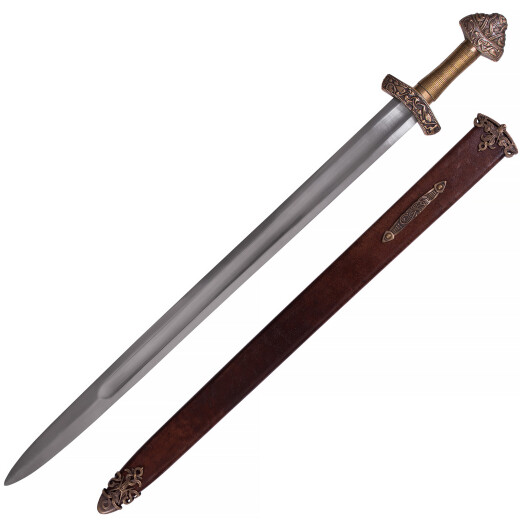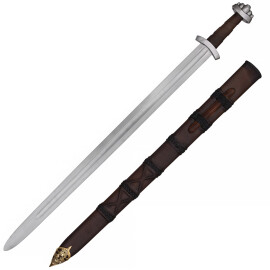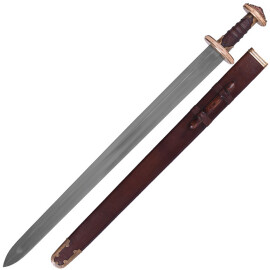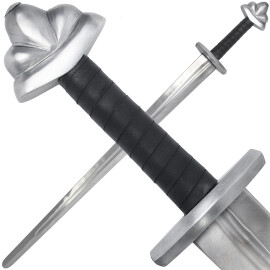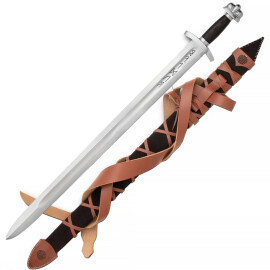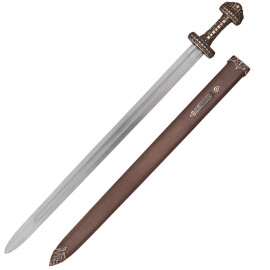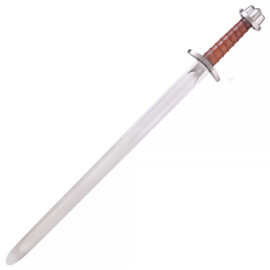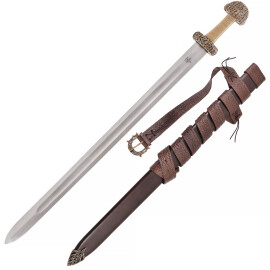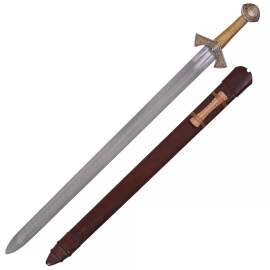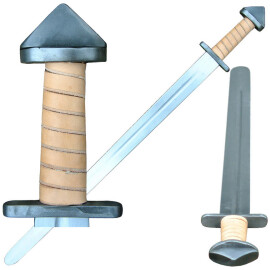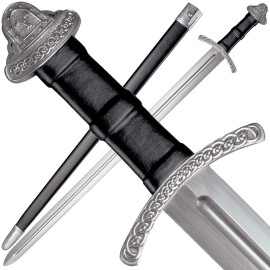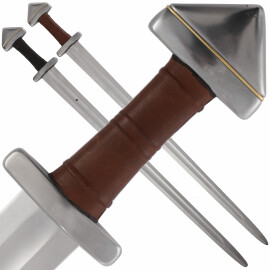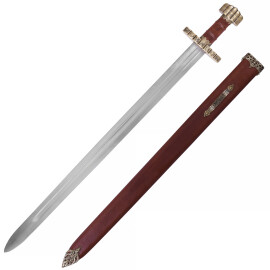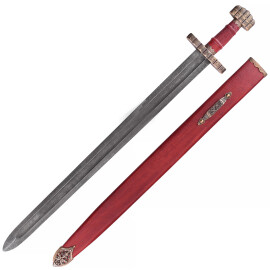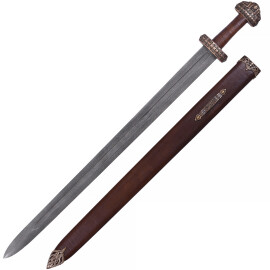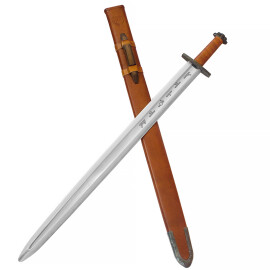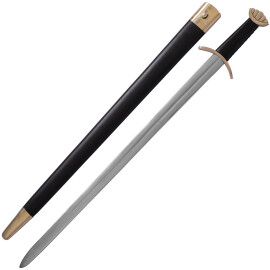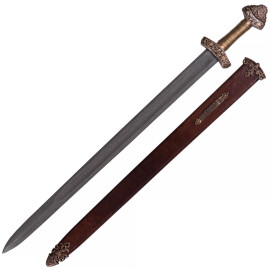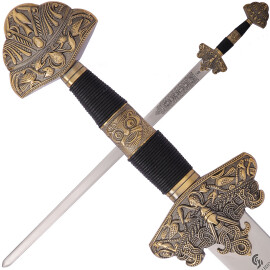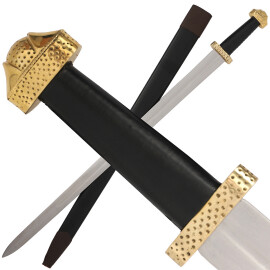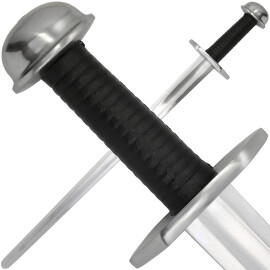Dybäck Viking Sword with Tempered Blade and Scabbard
This gorgeous, single-handed Viking sword is based upon an archaeological piece found around 1870 in a peat bog in Dybäck - also spelled Dyback, Dybek or Dybeck, Scania (Skåne, a part of Denmark during the Viking Age, now Sweden). The original find is now on display at the Historical Museum - Historiska Museet - in Stockholm (item SHM 4515). More information...
Notify me when the item is in stock.
We will inform you as soon as we stock up.
Dybäck Viking Sword with Tempered Blade and Scabbard
While the pommel cap no longer survives, the gold wire-wrapped grip, the gilded silver pommel base and crossguard as well as the scabbard mouth or locket (which fused to the guard with time) are still remarkably well preserved. All parts of the hilt are adorned with intricately engraved motifs of intertwined birds, snakes, fantastic creatures and tendrils.
This finely crafted piece of Viking history, dated to ca. 1000 AD and classified as a Type Z according to Petersen's Viking sword typology, is generally considered to be one of the finest Viking Age examples found in Scandinavia. The animal and plant detailing, which is commonly accepted to be in the Anglo-Saxon Winchester style (8th-11th c.), indicates that the sword has its origins in England or was at the very least strongly influenced by the type of metalwork that was crafted there. As this ornamentation style was particularly popular with the Scandinavian nobility who maintained active contact with England in the late 10th / early 11th century, and considering the precious materials and quality craftsmanship put to use, this sword is believed to have been the prestige weapon of a wealthy Norse nobleman or person of high status.
The reconstruction we offer here has a straight, double-edged tempered EN45 spring steel blade with a broad fuller and unsharpened edges. The hilt is composed of a short, slightly downwardly curved guard, a grip tightly wrapped in brass wire and a generously sized pommel with upwardly curved base and 3-lobed cap. The guard and pommel base closely recreate the highly detailed engraved motifs and patterns of the original artefact. Just like many historical examples of the time, the sword's pommel is a two-part construction: The blade's full tang is threaded to the lower section, and the pommel cap is secured to the base with two rivets.
This early medieval one-handed sword comes complete with a brown wood-and-leather scabbard with antiqued and finely detailed brass throat, chape and belt loop (max. belt width 6cm).
Please note that this sword is not a battle ready weapon. It is designed as a collector's or decoration/display piece and is not suited for combat reenactment. Besides its quality as a collectible, it is also perfectly suited as a prop, e.g. to complete your costume.
A Damascus steel version of this sword is also available in our shop (Product No. 0116040900).
Specifications:
- Material: EN45 spring steel blade (high carbon steel, not stainless), brass wire-wrapped grip, cast brass guard and pommel
- Overall length: approx. 92cm
- Blade length: approx. 74cm
- Blade thickness: approx. 4mm (cutting edges approx. 1mm)
- Hilt length: approx. 18cm (grip approx. 9.5cm)
- Max. blade width: approx. 4.5cm
- Point of balance: approx. 12.5cm from the guard
- Incl. wooden scabbard with genuine leather cover and brass fittings
- Weight without scabbard: approx. 1.1 kg
- Weight with scabbard: approx. 1.7 kg
Specs may slightly vary from piece to piece.
The steel used here is not rust-proof and might show slight surface tarnishing in places. We recommend you to maintain the blade on a regular basis, for example using Ballistol Universal Oil, which is ideally suited for steel care.
Write to our specialist


